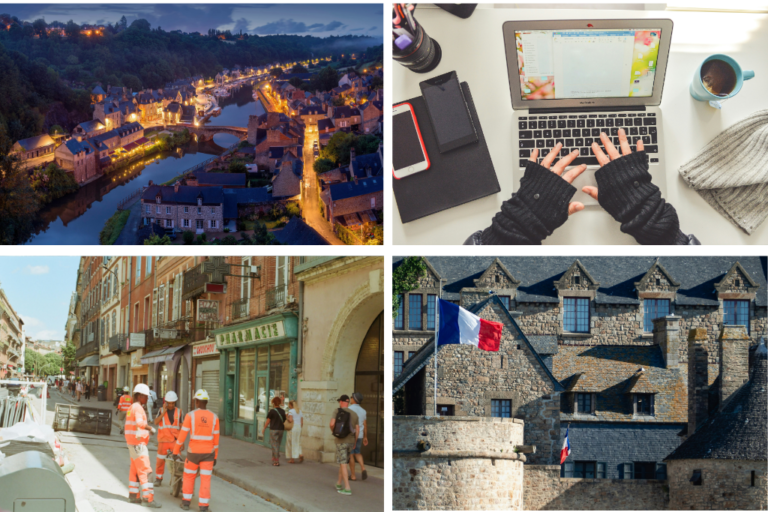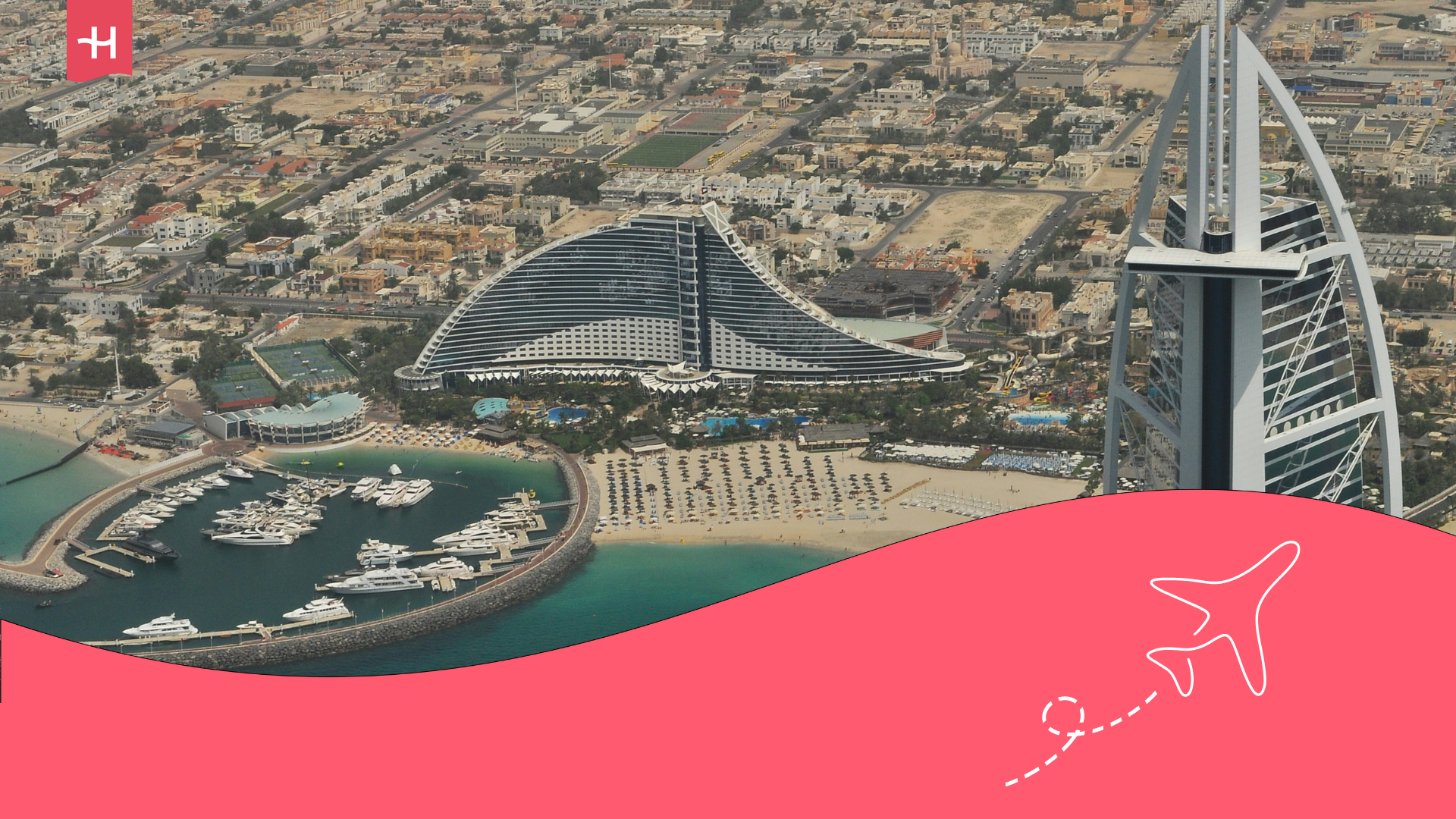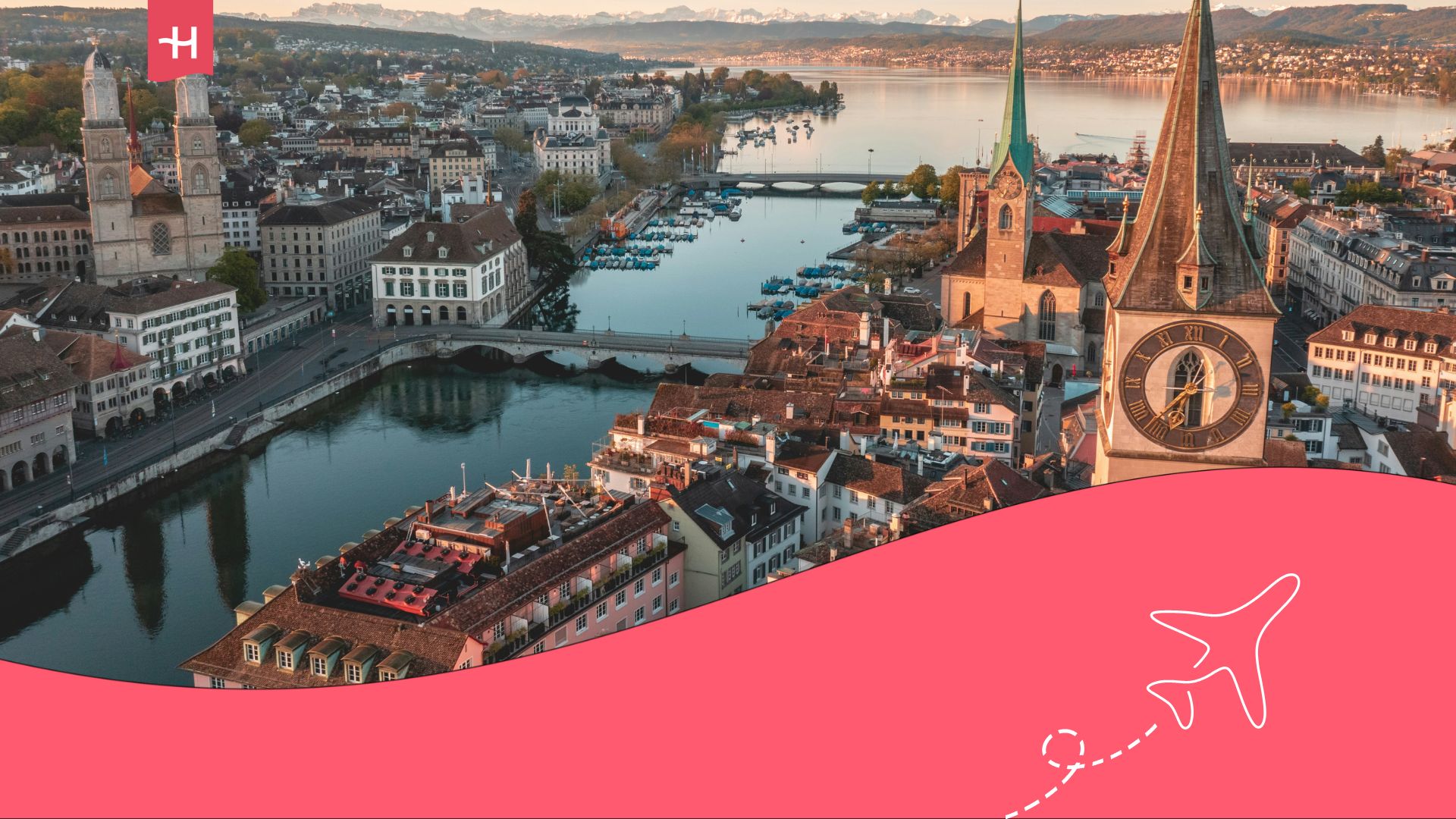Work in France: Requirements and opportunities
Do you want to work in France? Here we explain the requirements, job opportunities and everything you need to know to find employment.
France is not only famous for its gastronomy, art, and charming landscapes, but also as one of the most attractive destinations if you’re seeking new work opportunities in Europe. Whether you dream of living in Paris, a southern coastal city, or quieter rural areas, working in France can be a rewarding personal and professional experience.
In this article, we explain everything you need to take that step: Legal requirements for working, essential documents, the most in-demand profiles, how to find a job, and what opportunities exist based on your education or experience. If you are considering moving to France for work, here you’ll find a clear, up-to-date guide to help you start on the right foot.
What are the advantages of working in France?
If you’re thinking of moving to France to start a new career phase, here we explain the advantages that make this country an attractive option for growth and a good quality of life:
- Strong labour protection: France has labour laws that protect you. Regulations cover working hours, dismissals, paid leave, and employment conditions. The standard workweek is 35 hours, and employees are entitled to at least five weeks of holiday per year, ensuring a good work-life balance.
- Access to a high-quality health system: By working in France and registering for social security, you gain access to one of the world’s best public health systems. Most medical costs are covered by the state, and complementary insurance helps cover the rest, providing peace of mind.
- Good minimum wage and social benefits: The minimum wage (SMIC) in France is among the highest in Europe. Employees can also receive social aids such as housing subsidies (CAF), transport support, and family benefits. While living costs in large cities can be high, these benefits help offset expenses.
- Economic and job stability: France offers indefinite contracts (CDI), valued for providing job stability, credit access, and better conditions. You may initially enter with temporary contracts (CDD), but many companies aim to offer long-term CDI if employees meet expectations.
- Continuous training and career growth: Employees in France have the right to professional training throughout their career. State or company-funded programs help improve skills, learn languages, or adapt to new technologies, facilitating career growth and professional reskilling.
- Diverse sectors demanding foreign talent: France needs workers in technology, healthcare, engineering, construction, hospitality, and agriculture. Companies sometimes hire foreigners even without full French proficiency, especially if they offer hard-to-find skills.
- High quality of life and culture: Working in France isn’t just economic. It’s also a cultural experience. Living in a country with historical heritage, access to art, gastronomy, diverse landscapes, and well-developed public services enhances your quality of life.
Requirements for working in France
Before packing for work in France, it’s important to understand the legal requirements to work legally. France, as a European Union member, has specific rules depending on your nationality, the type of job you seek, and the length of your stay.
Here we explain clearly what documents you need, which permits to request, how social security works, and steps to start your working life in France. If you have questions about visas, contracts, or administrative procedures, this guide provides everything you need to begin safely.

- Have a prior job offer: To obtain a visa or permit to work in France, you must have a formal job offer from a French company. The employer must prove no suitable candidate was found in France or the EU.
- Obtain a work visa: Once you have a job offer, you must apply for a long-stay work visa at the French consulate or embassy. Different types exist depending on the job. Each visa requires specific documents: Contract copy, employer letter, qualifications proof, and sometimes French level.
- Residence permit: Upon arrival with your visa, you must apply for a residence permit at the local prefecture. This document legalises your stay while you work. Some permits include the right to work (like “salarié” or “passeport talent”).
- Register for French social security: All foreigners must register with sécurité sociale to access healthcare, unemployment protection, pensions, etc. Your employer can help with your social security number, or you can do it yourself with your contract and permit.
- Language skills: While speaking French is not always mandatory, it is highly recommended. Sectors like hospitality, sales, healthcare, or public administration require at least an intermediate level. For technical, IT, or scientific roles, English may suffice, but French improves opportunities and integration.
- Recognition of foreign qualifications: If your profession is regulated in France (doctors, architects, teachers, lawyers, etc.), you must validate your degree with French authorities via ENIC-NARIC or the Ministry of Education.
7 Tips to start working in France
- 1. Adapt your CV to the French format: In France, a clear and concise CV (1–2 pages) is valued and must follow the local style. Include: Personal details (photo not mandatory), professional experience (most recent first), education, languages, and technical skills.
- 2. Look for temporary accommodation first: Initially, it’s best to choose flexible housing like coliving, Airbnb, or temporary residences until you get a fixed contract. This helps you get to know the city and choose a long-term area.
- 3. Open a French bank account: To receive your salary, you must open a French bank account. Usually, this requires a stable address, passport, visa, and proof of employment or contract.
- 4. Network from the start: Attend local events, job fairs, or expat meetups. Platforms like Meetup, LinkedIn, Eventbrite or Facebook groups help you connect with people in your sector or who have shared experiences.
- 5. Know your labour rights: France has strong labour protection with regulated hours, paid leave, and guaranteed minimum wage. Understand your rights from the first contract to avoid abuses or confusion.
- 6. Adapt to the French rhythm: French people value work-life balance. Punctuality, respecting schedules (especially lunch breaks), and a polite attitude at work are appreciated.
7 Have internet from day one: On arrival, mobile internet is essential: For Google Maps, finding housing, emailing employers, or completing procedures. Subscribe to a Holafly plan, offering unlimited monthly data for France. Activate before travelling and use immediately, no physical SIM or local contract needed. Ideal for the first months while settling in.
Types of work in France for foreigners
From qualified roles to temporary jobs, France offers different options for foreigners seeking to enter the labour market:
| Sector | Job Position | Main features |
|---|---|---|
| Hospitality and tourism | Waiter, cook, receptionist, tour guide | High demand. French not always required. Shift work, busy season in summer. |
| Logistics and delivery | Delivery driver (Uber Eats, Amazon), warehouse worker | Physically demanding and flexible. Low qualification needed. Punctuality and autonomy valued. |
| Construction | Bricklayer, electrician, plumber | Well-paid if experienced. Technical training appreciated. Basic French recommended. |
| Cleaning and services | Cleaning staff, concierge, maintenance | Accessible to beginners. Stable work, but physically demanding. Varied schedules. |
| Technology (IT) | Web developer, data analyst, IT technician | Highly demanded. English often sufficient. Remote work possible. |
| Engineering | Civil, industrial, mechanical engineer | University education required. Good salaries. Degree recognition may be necessary. |
| Customer support | Call centre agent, Spanish support | Hispanophone preferred. Medium salary. Basic French required; English useful. |
| Digital marketing | Community manager, graphic designer, SEO manager | Growing sector. High demand in startups. Remote or hybrid work possible. |
| Education | Spanish teacher, language assistant | Language proficiency required; certification sometimes needed. Excellent option for natives. |
| Health and care | Nurse, elderly caregiver | Stable work, requires degree recognition. High demand. Rotating shifts. |
Most in-demand jobs in France for foreigners
France offers many opportunities for foreigners seeking work. Some sectors require international talent due to language needs, technical skills, or essential services. Here are 5 highly requested professions in France that provide an excellent entry point into the French labour market.

- Web developer / Software engineer: Paris is a growing tech hub with many startups and international companies seeking programming talent (JavaScript, Python, Java, etc.). Many vacancies accept English as the main language, ideal for tech profiles.
- Multilingual customer service agent: International trade, digital services, and tourism companies hire Spanish speakers or multilingual staff. Common in support centres or call centres targeting Latin American or Spanish markets.
- Waiter / Kitchen assistant: The hospitality sector is strong in Paris due to tourism. Restaurants, hotels, and cafés hire constantly, even people with basic French. Ideal for newcomers seeking quick entry into the job market.
- Nanny / Au pair: Many Parisian families seek foreign nannies, especially Spanish speakers, to help children learn another language. Work can include accommodation or part-time schedules. Perfect if experienced with children.
- Spanish teacher / Language assistant: Spanish is one of the most studied languages in France. Demand exists in schools, lycées, academies, and private classes. If you are a native speaker with some teaching experience, this is an excellent opportunity.
Salaries and cost of living in France
The minimum wage in France in 2025 is around €1,398 ($1,520) net per month. Many foreigners without experience or French language skills start near this amount, especially in hospitality, cleaning, or delivery. However, qualified roles (tech, health, education) can easily surpass €2,000 ($2,175) per month.
The cost of living varies by city. In Paris, sharing a flat and living modestly may cost between €1,300 ($1,410) and €1,800 ($1,955) per month. Smaller cities like Lille or Rennes cost around €900 ($975) to €1,200 ($1,300). Rural areas are even cheaper.
Important: If you are a frequent traveler and want to stay connected without worrying about expensive roaming or looking for a new SIM at every destination, Holafly’s subscription plans are for you. With a single eSIM, enjoy internet in more than 170 countries for a fixed price and no surprises on your bill. Travel without limits and connect easily and securely! 🚀🌍

Where to find job opportunities in France
Finding work in France can seem challenging initially, but the country provides various reliable tools and channels to simplify the search. Online platforms, employment agencies, European networks, or government programs help access opportunities based on your profile and sector. Here are the main ways to search for jobs in France, useful for foreigners.
- Employment and temporary work agencies (intérim): Offer short-term contracts and can help you enter the labour market. Examples: Adecco, Manpower, Randstad, Crit. They usually have positions in logistics, industry, cleaning, catering, or events.
- International recruitment agencies: Some link foreign talent with French companies. France Travail International supports labour mobility from other countries. EURES provides EU job opportunities and advice for Europeans seeking work in France.
- Government job campaigns: The government runs hiring campaigns in high-demand sectors, especially during certain seasons. GECCO Order (Collective Hiring Management Abroad) recruits foreign workers (e.g., Moroccan or Latin American) in agriculture and seasonal jobs.
- Job fairs and networking: Cities like Paris, Lyon, or Marseille host job fairs where you can submit your CV directly. LinkedIn and other professional networks also allow direct recruitment by companies.
- Using the right online platforms simplifies job search. Pôle Emploi is the official government portal with listings and advice. Indeed.fr offers ease of use and filtering options. Welcome to the Jungle is great for startups or international environments, while Apec.fr targets university-level profiles.
Frequently asked questions about working in France
Yes, with planning. If you share accommodation, manage expenses and choose lower-cost cities, you can cover basics on minimum wage. In Paris, it may be tight. Higher-paying jobs allow more comfort and savings.
Not always. In sectors like tech, logistics, or cleaning, some jobs don’t require high French levels. However, learning French opens more opportunities and eases integration.
You need a valid work permit, which may be included in your visa or provided by an employer. EU/EEA citizens can work without a visa. Others require an approved work visa.
Carry a valid passport, visa or work permit (if needed), employment contract (if already hired), proof of accommodation, and CV in French. Also, bring translated degrees and previous work documents.
It depends on your job type and language level. Many foreigners find their first jobs in one to three months, especially in high-demand sectors. Integration (contributions, health, taxes) starts almost from the first legal contract, thanks to employer coverage.





 Language
Language 


















 No results found
No results found







